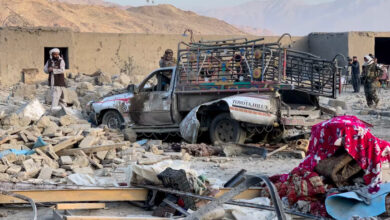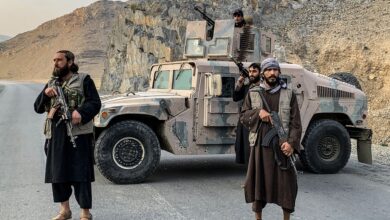Islamabad–Pakistan’s parliament is expected to pass a set of constitutional reforms this month that would strip President Asif Ali Zardari of his sweeping powers.
Zardari is expected to address the issue in a Pakistan Day speech on Tuesday.
Here’s how the future political landscape of the nuclear-armed ally of the United States might look after Zardari reluctantly agrees to shed some of the office’s powers.
The clipping of the presidency’s vast powers will effectively turn Zardari into a figurehead.
The most important powers to be taken from Zardari are his authority to dissolve the National Assembly, parliament’s lower house. He will also lose the authority to appoint the heads of the army, navy and air force.
The proposed constitutional changes will also restrict the president’s role in the appointment of judges, the chief election commissioner and the naming of a caretaker government before calling general elections. The proposed reforms also reduce Zardari’s power to impose emergency rule in the country.
The proposed changes also call for the lifting of a bar on becoming prime minister for a third time. This might allow Zardari’s top rival and two-time former prime minister Nawaz Sharif to return to the corridors of powers after general elections due by 2013.
After being reduced to a ceremonial head of state, Zardari’s strength will lie with his ruling Pakistan People’s Party (PPP). Zardari became head of the PPP after a suicide bombing killed his wife and former prime minister Benazir Bhutto in December 2007.
Though Zardari lacks his wife’s charisma and has been dogged by accusations of corruption, the PPP has remained largely intact. It stood by him during the several political crises he faced since becoming president in September 2008.
Whether Zardari can retain his grip on the party with the loss of his powers remains to be seen.
Prime Minister Yusuf Raza Gilani will emerge as the powerful head of government as most of Zardari’s powers transfer to him.
Gilani had been staunchly loyal to Bhutto, though he did at times defy her during his stint as speaker of the National Assembly in the 1990s.
Though there has been media speculation of differences between Zardari and Gilani, the soft-spoken prime minister has remained loyal to his leader and strongly defended him during a recent row between Zardari and judiciary over the appointment of judges.
Look for Gilani’s role to come under increased scrutiny after the major powers of the presidency pass to him.
Although the army has ruled Pakistan for more than half of its 61-year-old history of independence, the chances of another military coup are negligible. Army Chief General Ashfaq Kayani has vowed to keep the military out of politics.
However, analysts say the army is expected to retain its dominant role in political affairs, just as it did when it played a behind the scenes role last year to end a confrontation between Zardari and Sharif over the restoration of judges sacked by former military ruler Pervez Musharraf.
The army would also maintain its influence in other key spheres such as Afghan policy, the fight against Islamist militants and relations with old rival India, analysts say.
The reform package is being prepared by a parliamentary committee comprised of members from all political parties in parliament. While the committee has reached a consensus on what the powers of the president, prime minister and the parliament should be, it has yet to decide on some other ticklish political issues such as renaming North West Frontier Province (NWFP). There are differences over the new name of the province between Sharif’s party and the Awami National Party (ANP), a secular and ethnic Pashtun nationalist party leading a coalition government in the NWFP.
A newspaper on Monday said these differences could scuttle plans to get the "almost agreed" reform package passed, but other news reports said Sharif and the ANP are likely to reach an agreement.



